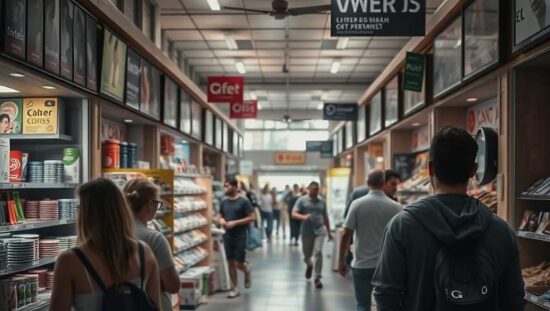German Retail Sector Grapples with Persistent Weakness, Casting Shadow on Economic Outlook
The German retail sector continues to navigate a period of subdued performance, with the latest data from the Ifo Institute revealing a stubbornly pessimistic outlook. While the retail climate index edged up slightly in October to -23.2 points, a marginal improvement from September’s -23.8, the overall sentiment remains deeply entrenched in negativity, raising concerns about the broader health of the German economy.
Analysts at Ifo characterized the sentiment as “moving sideways at a low level” emphasizing the persistent gloom surrounding future prospects. “Expectations are particularly dampened” stated Patrick Höppner, Ifo expert, noting that many retailers anticipate a challenging business environment lasting well into 2026. This prolonged period of uncertainty threatens investment and job creation within the sector.
The divergence in performance across retail sub-sectors underscored the complex landscape. Furniture stores and hardware retailers showed a slight uptick in sentiment, while clothing retailers experienced a mild deterioration. A concerning majority – over half – of retailers reported cautious consumer behavior, highlighting the ongoing struggle to stimulate demand. The physical store environment remains particularly vulnerable, with a significant 45.3% of retailers reporting foot traffic below seasonal norms during the third quarter. This underscores the ongoing shift towards online shopping, though even that channel is showing signs of fatigue, with a still-significant 23.7% of retailers reporting fewer clicks than usual.
Adding to the pressure, more retailers are planning price increases in the coming months. The indicator for price expectations rose slightly to 25.9 points in October. This trend is particularly pronounced among furniture retailers and grocery stores, potentially fueling inflation anxieties and further dampening consumer spending.
Beyond fluctuating demand, retailers are contending with fundamental structural challenges. The enduring skills shortage remains a significant hurdle, impacting 25.4% of retailers, hindering expansion and operational efficiency. Furthermore, a worrying 6.8% are reporting financing difficulties, suggesting vulnerability within the sector and potentially foreshadowing consolidation or even failures in the coming years.
The ongoing struggles within German retail aren’t merely about immediate sales figures; they expose deeper anxieties regarding consumer confidence, the resilience of the German business model and the government’s ability to effectively stimulate economic activity and address long-term structural weaknesses. While recent government initiatives aimed at supporting local businesses are welcome, the persistent negativity within the retail sector suggests a more comprehensive and sustained policy response is required to ensure a robust and sustainable economic recovery.





